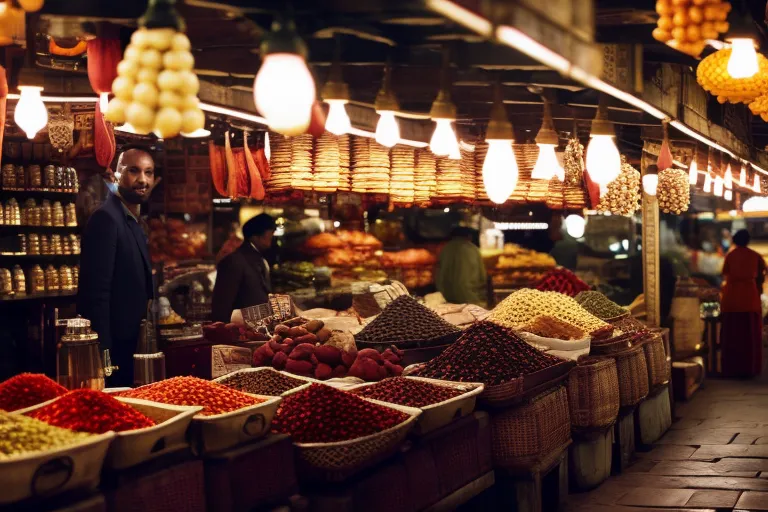When we think of the Silk Road, we often picture the vast deserts of Central Asia, the bustling markets of China, and the exotic spices of India. But did you know that the ancient city of Tbilisi in Georgia played a crucial role in this legendary trade route?
A Strategic Location
Tbilisi's strategic location made it an ideal spot for merchants to stop and rest on their long journeys. The city's position on the banks of the Kura River, at the crossroads of Europe and Asia, made it a natural hub for trade between the East and the West.
Merchants from the East would travel through the Caucasus Mountains, where they would stop in Tbilisi to rest and replenish their supplies. From there, they would continue on to the Black Sea, where they would board ships bound for Europe.
Merchants from the West would follow the same route in reverse, stopping in Tbilisi to rest and trade before continuing on to the East.
A Center of Commerce
Tbilisi was more than just a pit stop, however. It was also a center of commerce in its own right. The city's bazaars were filled with goods from all over the world, from Chinese silk to Indian spices to Persian carpets.
Merchants would come to Tbilisi to buy and sell goods, and the city's markets were a hub of activity. The bazaars were divided into sections, with different areas specializing in different goods. The silk market, for example, sold Chinese silk, while the spice market sold Indian spices.
A Melting Pot of Cultures
As a result of its position on the Silk Road, Tbilisi was a melting pot of cultures. Merchants, travelers, and traders from all over the world passed through the city, bringing with them their own customs, traditions, and beliefs.
This cultural diversity is still evident in Tbilisi today. The city's Old Town is a maze of narrow streets and alleyways lined with colorful houses and ancient churches. Here, you can see the influences of Persian, Ottoman, and Russian architecture, all blended together in a unique and fascinating way.
A City of Hospitality
One of the things that made Tbilisi such an important stop on the Silk Road was its reputation for hospitality. The city's residents were known for their generosity and kindness to travelers, offering them food, shelter, and protection.
This tradition of hospitality is still alive in Tbilisi today. Visitors to the city are welcomed with open arms, and it's not uncommon for strangers to strike up conversations with each other on the street.
The Legacy of the Silk Road in Tbilisi
Although the Silk Road is no longer the major trade route it once was, its legacy lives on in Tbilisi. The city's bazaars are still filled with exotic goods from all over the world, and its streets are still lined with ancient buildings that tell the story of its rich history.
If you're interested in learning more about Tbilisi's role in the Silk Road, there are plenty of places to explore. The Georgian National Museum has an excellent collection of artifacts from the Silk Road era, including ceramics, textiles, and jewelry. And the Narikala Fortress, which dates back to the 4th century, offers stunning views of the city and the surrounding countryside.
Modern-Day Tbilisi
Today, Tbilisi is a bustling and modern city that still retains its unique character and charm. The city is home to a thriving arts and culture scene, with museums, galleries, and theaters showcasing the best of Georgian art and culture.
One of the most popular attractions in Tbilisi is the sulfur baths, which have been a fixture of the city since ancient times. The baths are fed by natural hot springs and are said to have healing properties. Visitors can soak in the warm, mineral-rich waters and relax in the steam rooms and saunas.
Conclusion
Tbilisi may not be the first city that comes to mind when you think of the Silk Road, but its role in this legendary trade route cannot be overstated. From its strategic location to its cultural diversity to its tradition of hospitality, Tbilisi was a vital stop on the journey between East and West. And today, it remains a fascinating and welcoming city that is well worth a visit.
